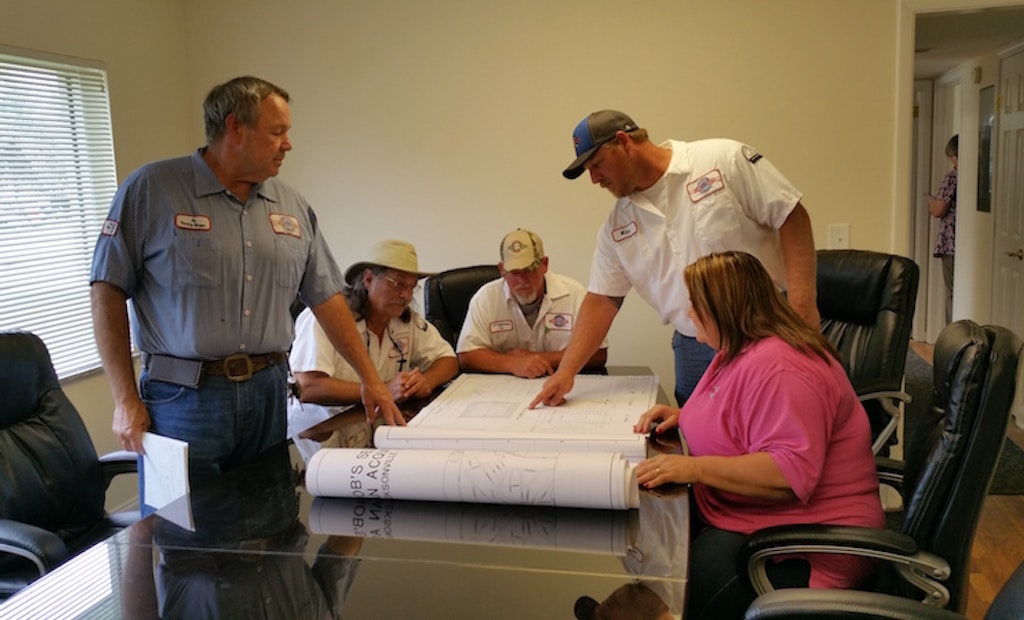Interested in Education/Training?
Get Education/Training articles, news and videos right in your inbox! Sign up now.
Education/Training + Get AlertsWhen a newcomer to the septic industry contacted him around 30 years ago asking about starting out in the business, Larry Garner was happy to help. He never thought twice about helping out another person entering his same business — or even his same territory.
“If you do good quality work and have good quality people, word of mouth gets you a lot of business,” says Garner, 76, retired owner of A. Carver Septic in Jacksonville, Florida. “If there was just one company in town, he couldn’t do it all; it’s up to the individual to get the job, do the job … once you do that, you’ve got a customer for life.”
Tom McLaughlin, who has now logged almost 40 years in business as owner of Metro-Rooter in Jacksonville, was the newcomer in the 1970s looking for some seasoned direction.
And in the process of helping McLaughlin all those years ago, Garner realized he not only helped another business owner succeed, he also made a lifelong friend. Both continue to speak highly of each other.
“If you can find a friend, he’s worth more than all the dollars,” Garner says. McLaughlin’s company ended up being much larger than Garner’s, but Garner didn’t want his business to get any bigger, so he was ultimately pleased for McLaughlin.
McLaughlin credits Garner, as well as other mentors in the industry, with believing in a special sort of work ethic and collaborative nature. “It’s kind of like farmers and other agrarian types,” McLaughlin says. “They don’t live in the fast lane; they help others and receive personal reward for helping others. That’s the kind of position I take; it just does the heart good.”
Choosing mentorship carefully
McLaughlin now enjoys returning the favor, serving as a mentor to others. “It’s been my nature to help other people,” he says. “That’s the way I’m wired.”
But he cautions against just spilling secrets and telling too much to people you may not be able to trust.
“Choose your candidates carefully. Look for the right person to share your advice with, one with similar concern for others.
“Make sure they are deserving of your mentorship. Early in my career, I thought I could change everybody,” he says, noting that he’d try to show others the “right” or better way. But that doesn’t always work out.
“Mentor people who are going to use the mentoring in a positive manner,” he says, recognizing that there is a fine line between mentoring and correcting.
He believes the most productive form of correcting behaviors or actions is teaching by example. “Demonstrate and only mildly redirect actions that are incorrect. Operate under the principle that the incorrect actions were not deliberate.”
McLaughlin also tries to educate his workers to serve as mentors as well. “It’s not a structured check-the-boxes mentorship program.” Rather, he tries to pair new employees with more seasoned ones so they learn “how we roll.”
Ruben “Sonny” de la Rosa III of Valley Plumbing and Septic in Rio Rico, Arizona, also encourages his more seasoned employees to serve as mentors to newcomers. His 10-year employee Alonzo Medina has done just that.
“Alonzo is an old-school guy,” de la Rosa says. “He doesn’t do technology; he does hard work. When the guys that are young … aren’t as savvy at holding a shovel and a pick, they realize that this older guy … can put out hard work.”
Mentorships, whether formal or informal, do still exist. But some operators believe times have changes as demographics change.
All those 30 years ago, for example, when Garner helped show McLaughlin the ropes, he ended up getting a strong competitor and a good friend. But Garner admits that while mentors do still exist, “It’s different now than it was back then.”
“Now, it’s a dog-eat-dog business,” he says, noting that with increased regulations, some operators may not want “to let out trade secrets.”
Even though the younger generation may have a different mentality, there’s still a lot of value in helping others.
No matter what the industry, de la Rosa says, “In any walk of life, having a mentor is a good thing.”






